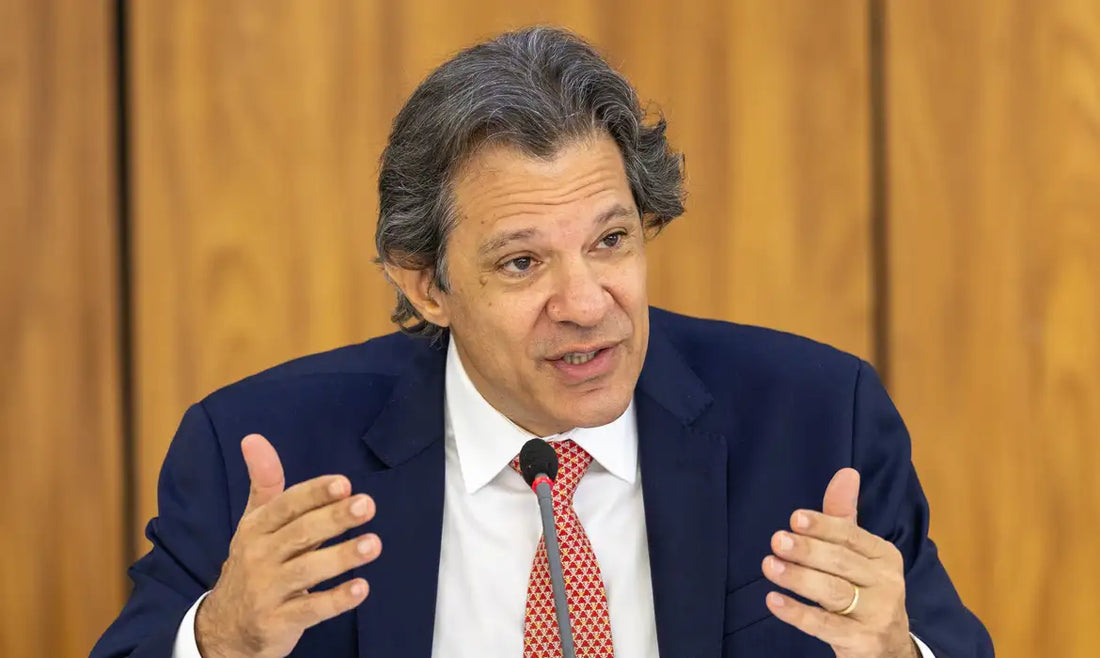
Fernando Haddad seeks investment in a Global Economic Scenario
During his trip to the United States, the Minister of Finance, Fernando Haddad, has been present at a series of significant events that highlight Brazil's growing role in global economic and ecological discussions. With scheduled appearances at the International Monetary Fund (IMF), World Bank and G20 meetings, Haddad is taking advantage of the opportunity to promote Brazil as an attractive destination for investment, especially in the wake of the recent tax reform.
Investment Promotion and Tax Reform
In his first appointment in Washington, at the United States Chamber of Commerce, Haddad detailed the positive effects of the Brazilian tax reform for foreign investors. The reform, which aims to correct long-standing distortions in consumption taxation, is presented as a milestone for the establishment of a more favorable business environment in Brazil.
IMPORTANT: The new tax legislation is seen as a crucial step to align Brazil with first-world tax practices, scheduled to be fully implemented by 2027.
Focus on the Ecological Transition
In another event, Ilan Goldfajn, president of the Inter-American Development Bank, reinforced the importance of the ecological transition as a development opportunity for Latin America. Haddad and Goldfajn discussed how Brazil is leading with innovative initiatives, such as the green hegde, introduced at COP28, which aims to finance environmental projects through exchange rate protection mechanisms.
IMPORTANT: The discussion on sustainable finance is crucial as it reflects a global trend of aligning economic development with environmental sustainability.
Haddad's agenda at the G20
Throughout the week, Haddad's agenda is intense and covers a variety of critical topics:
- Combating Food Insecurity: Haddad will participate in a panel on food insecurity at the World Bank, highlighting Brazil's commitment to the global fight against hunger.
- International Taxation: A discussion, co-hosted with France, on international taxation at the IMF, reflects Brazil's active role in shaping global tax policies.
- Participation in World Bank and IMF Events: Meetings at global financial institutions will be opportunities for Haddad to discuss economic policies and seek support for Brazilian initiatives.
Radical Reforms and Environmental Financing
Mark Carney, UN special envoy for Climate Action, praised the Brazilian strategies presented under the G20 presidency, indicating the need for profound reforms in international financing for the environment. These reforms are essential for countries to be able to adequately finance their ecological transition plans.
The concern about Fernando Haddad's ability to attract international investment to Brazil, considering questions about his competence, reflects a valid question that many investors and analysts may be pondering. A finance minister's ability to secure trust and attract foreign investment depends on several factors, including the perception of his competence, confidence in the policies he implements, and the broader economic and political context. Here are some points that can influence this perception:
1. History and Public Experience
Although Haddad has a solid academic background and experience as Minister of Education and mayor of São Paulo, his experience in positions directly related to economic management is more limited. This could lead to questions about his ability to navigate Brazil's complex economic challenges. However, your ability to learn quickly and implement effective policies while in previous roles may be a mitigating factor.
2. Brazil's Economic Challenges
Brazil faces several economic challenges, such as high inflation, high unemployment and slow economic growth. These challenges are structural and cannot be attributed to a single leader. Haddad's ability to address these problems, implementing significant reforms and promoting economic stability, will be crucial to attracting investment. Tax reform, for example, is an area where he has strived to make changes that can improve the business environment.
3. Market Confidence
Market confidence can be influenced by concrete statements and policies. If Haddad and his team can effectively communicate their strategies and demonstrate commitment to pragmatic economic and fiscal reforms, it could help build credibility. On the other hand, policy hesitancy or lack of clarity can exacerbate existing concerns.
4. Political Support and Governance
Haddad's ability to navigate the Brazilian political landscape and secure sufficient support for his policies in Congress is also crucial. Without this, it could face significant difficulties in implementing the reforms needed to stimulate investment.
So while there are legitimate concerns about Fernando Haddad's ability to attract international investment to Brazil, much will depend on how he and his team address the country's economic challenges and implement reforms. The effectiveness of its policies, its communication capacity and the perception of its competence by international investors will be decisive.
Concluding
Fernando Haddad's presence at high-level international events is not only a demonstration of Brazil's commitment to economic and ecological reforms, but also a strategy to reinforce the country's position as an emerging leader in global discussions. The discussed initiatives and potential agreements could have far-reaching implications for the economic and environmental future of Brazil and Latin America.
How do you see the role of Brazil and Fernando Haddad in global economic and environmental reforms? Do you believe that the strategies presented will be effective? Share your perspectives in the comments below.


















































